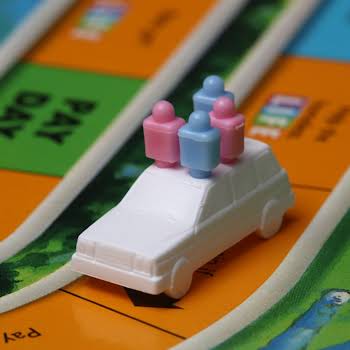
Things Fall Apart: The importance of giving yourself a break from ‘the everyday’
By Lia Hynes
01st Jul 2019
01st Jul 2019
When Liadan Hynes’ marriage fell apart she had to work on adjusting to the new reality. In her weekly column, Things Fall Apart she explores the myriad ways a person can find their way back to themselves
It has been building for weeks. All my friends are talking about it. The emotion that at all times threatens to overflow into meltdown. The feeling that they are coming down with something, but never quite getting sick. Just out of sorts.
Their children, I mean, not my friends themselves. We’re all terrified of them, the children; creeping around them, they who veer wildly, minute to minute, from floods of tears to towering rage. We are on eggshells.
It is approaching the end of term, and there is an end of days feeling to it. As if our little civilisation, such as it is, is close to breaking point. We are exhausted, and there are little cracks appearing everywhere.
Under pressure
“Is there such a thing as ‘end of year exhaustion’ or have I made that up?” I ask her teacher one morning at drop off, willing her silently to agree. She does, thank God. It is not just us; it’s a thing. The phrase ‘bag of cats’ is bandied about.
All our systems are under pressure. I realise I am wearing Herself’s socks, not my own sports socks; laundry seems to have ground to a halt. We have had more takeaways and restaurant meals than I care to admit to.
The filling of the lunchbox has come to feel like a monumental task. All the reliables are being turned down by now. “Any thoughts on what you would like?” I ask on the last week. “McDonald’s?” herself says with a speculative gleam. “Babe,” I say, “If we could get away with it, I would.”
The putting together of the school kit, such as it is, the clean smock, finding the slippers, threatens to be beyond us every morning, as we drag ourselves to the finish line; the last Friday of term.
Herself, like the children of all my friends who I speak to – WhatsApp messages firing back and forth between us each evening with mounting desperation as bedtime stretches into hours – has been refusing to go to sleep until long after any sort of reasonable hour for weeks now.
We are exhausted. Slightly burnt out.
But it is okay.
Taking a break
Because we are about to go on holiday; a decent, long break. So we can admit to our exhaustion. Allow things to slide, contemplate whether McDonald’s chips would, in fact, work in a lunchbox; because this is, in fact, a temporary dropping of standards. Because we are about to get replenished.
But what if we weren’t? Weren’t about to take a break. If you are not facing into the chance to stop, or to at least slow down, then you don’t always admit to yourself just how much you are contending with. You push through.
Right after my marriage fell apart, I instigated a plan of things that would be a break from the everyday. There was a ‘micro’ and a ‘macro’ plan. The micro was little things every week. Coffees with friends, going for a walk. Little things that would take down the stress, create a break. Then there was the macro. Every two or three months, I would make sure to plan something really big that would take me out of day-to-day life, and act as a pressure valve.
Because in the midst of a crisis I knew I needed to stop, or slow down, every so often, so that I could then carry on. But really, you do not need to be in the midst of an actual, able-to-label-it crisis, to be run ragged, in need of a slow down, or a stop.
But you might be missing it; that need to slow down, if it’s just ‘the everyday’ you’re contending with. We keep going because we have to, not allowing ourselves to acknowledge how exhausting the day-to-day can be.
Build in a break so you can admit it to yourself.
Lia Hynes’ podcast series, How to Fall Apart is available to stream on multiple platforms now.
Photo: Jenn Evelyn-Ann on Unsplash
Read more: Things Fall Apart: The move to Big School doesn’t have to be scary
Read more: Things Fall Apart: A message to all the tired parents out there
Read more: The five torturous stages of bringing children to swimming lessons























